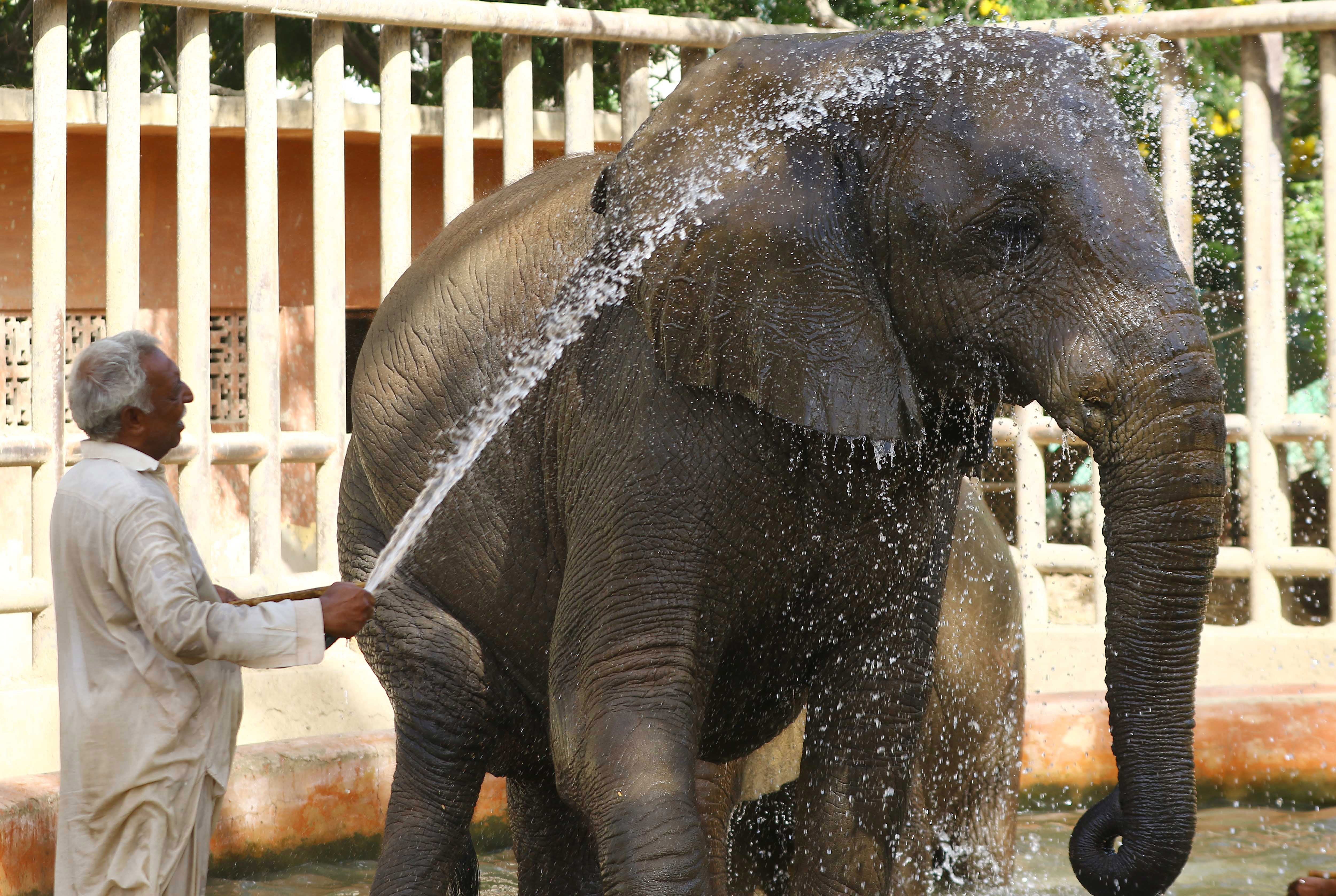Climate crisis making extreme heatwaves ‘100 times more likely’ in India and Pakistan
Record heat once seen every 312 years on course to happen annually by 2100, Met Office study says

Climate change is making record-breaking heatwaves in northwest India and Pakistan 100 times more likely, according to a study by the Met Office.
The research examined the chances of exceeding record-breaking average temperatures recorded in India in April and May in 2010.
It found that without climate change, the region should expect to see such temperatures once in 312 years. But with it these types of temperatures can now expect to be recorded once every three years, the Met Office says.
By the end of the century, the study shows, the region could see these temperatures on average once every year.
Swathes of India and Pakistan have been sweltering in stifling heat on and off since March, which was the hottest in more than a century in India.
Meteorologists have said it seems likely that a new record will have been set in April and May this year, but they will have to wait until the end of the month to be sure.
Nikos Christidis, who produced the Met Office study, said spells of heat had always been part of the region’s pre-monsoon climate in April and May.
“However, our study shows that climate change is driving the heat intensity of these spells making record-breaking temperatures 100 times more likely,” he said.
The heatwave has eased a little this week after temperatures peaked at 51C in Pakistan on Sunday.
However, the Met Office warned that the heat looks likely to build up again, with temperatures set to peak either later this week or at the weekend.
Maximum temperatures are again likely to reach 50C in some areas, it said.
Meanwhile, heavy rains have battered India’s remote northeast region, triggering floods and mudslides that have left at least eight people dead, according to the Associated Press.
A senior administrative official in Assam’s Dima Hasao district told the news agency that nearly 200,000 people in the area were cut off from the rest of the state as roads and bridges leading there were blocked or washed away.

Scientists have found that heavy rainfall is becoming more frequent and stronger in many parts of the world as a result of human-caused climate change.
In order to say to what extent climate change influenced the heavy rainfall in northeast India this week, an attribution study would have to be carried out.
Join our commenting forum
Join thought-provoking conversations, follow other Independent readers and see their replies
Comments


Bookmark popover
Removed from bookmarks